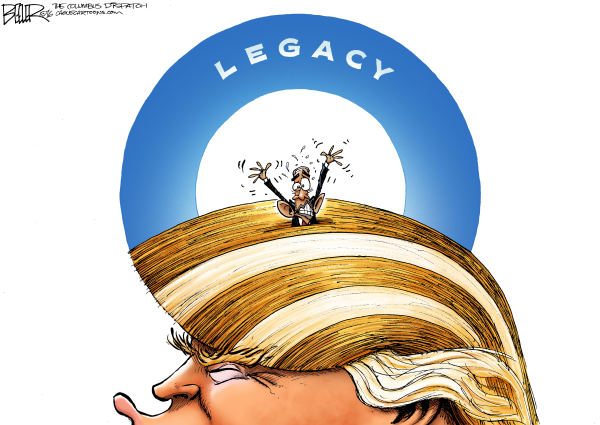
If you believed much of the mainstream media in these early days of the Donald Trump interregnum, the president-elect's transition team and process were in chaos and way behind schedule.
The exact opposite is true.
As if to prove that point Friday, Trump named Sen. Jeff Sessions attorney general, Rep. Mike Pompeo as CIA director and Gen. Mike Flynn as national security adviser.
At the two-week mark the political neophyte is actually ahead of schedule for the vast task of assembling a new executive administration. Because the D.C.-centric political media much prefer personalities and apparent fights to explanations of how government really works, few news consumers are fully aware of the painstaking process.
Donald Trump has appointed Kansas Rep. Mike Pompeo to be his CIA Director. The congressman comes with a tough stance on "enhanced interrogation" techniques and surveillance.
According to President Barack Obama aides, the Trump team did not realize it must replace virtually everyone working in the White House beyond service staff and on presidential appointments.
That's upward of 4,500 positions in less than 60 days. It's an unusually delicate process because during the campaign Trump made much of his management and talent-spotting skills. "You're hired!"
This hiring is especially important because:
1) Trump's a delegater. So appointments are likely to have considerable leeway in executing the president's policies.
2) He takes office under a cloud, largely self-created, of suspicion over his promises, ability and willingness to fulfill them.
3) Not only is Trump new to the workings, processes and legalities of government, so too likely will be many of his appointments, since much of the experienced governing Republican establishment rejected or quietly shunned the man who so steadily and accurately castigated the capital's cronyism.
This explains the welcome prominence and apparent early influence of transition chief and Vice-President-to-be Mike Pence, wiser in the ways of Washington and governance from his House of Representatives and gubernatorial experiences.
It's a tricky path Trump must walk. Elected to drain the swamp and evict the crooked cronies he says have mismanaged the country so long, he must also actually run the government that he's supposed to severely shake up. The slightest perceived compromise or wavering will be highlighted by media back on conscientious Republican watchdog duty after eight years of less-than-vigilant sentry service.
Trump will need energetic, loyal and savvy aides from Cabinet secretaries on down to give the impression of early action and success delivering on jobs, infrastructure, regulation reform, and ObamaCare repeal and replacement. Pick one and push it hard early to show supporters - probably infrastructure investments, which would attract some support from Democrats.
And be careful with the fights you pick. They provide fodder for memes about chaos-among-rookies.
So it's good to be careful up front with the vetting and selection of senior appointments. Trump has plenty of time. Most modern presidents began announcing major decisions about six or seven weeks after the election.
With media hanging on every rumor, the appointment process can also be useful theater for politicians, showing a thoughtfulness and breadth of considerations though most are mere courtesy. News consumers, however, would be well-served to avoid placing much stock in the flurry of names batted about like beach balls at a rock concert.
Of course, no one can move into the Oval Office without meeting with Henry Kissinger. But it's a useful symbol of class and outreach for a vengeful real estate magnate, now president-elect, to invite in Mitt Romney, his harshest GOP campaign critic, for an amiable get-together.
Few expected Romney to get more than a respectful hearing Saturday, which isn't bad after what they had said about each other. Trump described the 90-minute tour d'horizon as "extremely positive and productive." Romney called it a "very thorough and in-depth discussion."
Some over-eager writers, likely fed by conniving Trump aides, suggested Romney was a serious candidate for secretary of state. You know, like Abe Lincoln's team of rivals. There are rivals and then there are Romney and Trump.
Trump called Romney a "choker," among other things. Romney suggested Trump was dangerous and would preside over trickle-down racism, among other things. Other than that sort of stuff, ideal teammates.
Andrew Malcolm
McClatchy Washington Bureau
(TNS)
Comment by clicking here.
Malcolm is an author and veteran national and foreign correspondent covering politics since the 1960s.


 Contact The Editor
Contact The Editor
 Articles By This Author
Articles By This Author